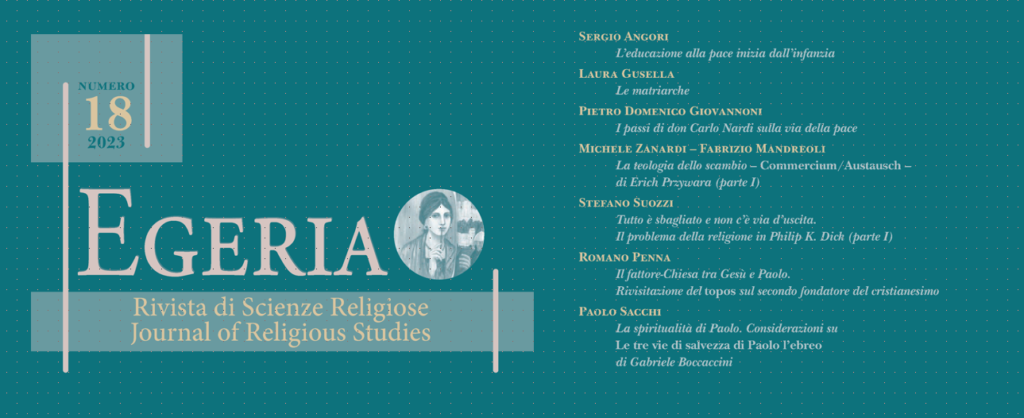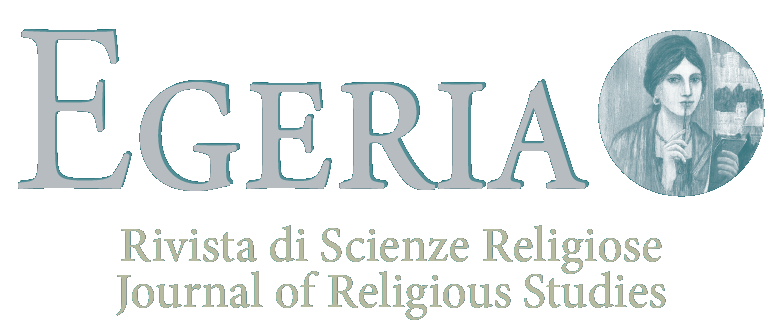
Sergio Angori
L’EDUCAZIONE ALLA PACE INIZIA DALL’INFANZIA
La guerra, se pure indirettamente, investe anche la vita dei bambini. La crescente
fragilità emotiva che manifestano impone di accrescere l’impegno nel promuovere
tempestive ed efficaci attività di cura e educazione nei loro riguardi. Aiutare
l’infanzia a saper affrontare situazioni caratterizzate da conflitti, contrasti e violenze,
di cui talvolta essa fa esperienza diretta o che, più frequentemente, vive
attraverso le immagini dei media, è compito primario dell’educazione. Convinti
della sostanziale inefficacia della attivazione, nei contesti scolastici, di una educazione
alla pace che si traduca in un complesso di apprendimenti formalizzati da
acquisire, più convincente e didatticamente produttivo appare un approccio che
guardi al conflitto come una sfida che, in forme più o meno marcate, connota la
convivenza sociale. Di qui la necessità, fin dall’infanzia, di imparare a dialogare
con le differenze presenti nei diversi contesti di vita piuttosto che presumere di
superarle imponendo il proprio punto di vista.
War, albeit indirectly, has an impact on children’s lives. The increasing emotional
frailty they show makes it necessary to increase efforts to promote prompt and effective
care and educational activities. The primary task of education is to help children to
know how to deal with situations characterized by conflict, disparities and violence,
directly experienced or more frequently perceived through media images. Certain of
the significant ineffectiveness of an education for peace based on a set of formalized
learnings, it would be more didactically efficient an approach through which conflict
is seen as a challenge that characterize, at different levels, the social coexistence. Hence
the need, from an early age, to face and deal with the differences of all life contexts,
rather than presuming to overcome them by imposing one’s own point of view.
Pietro Domenico Giovannoni
I PASSI DI DON CARLO NARDI SULLA VIA DELLA PACE
Il saggio esamina il lavoro di Carlo Nardi per la pace tra gli anni ’80 e ’90, dalla
crisi degli euromissili alla prima guerra del Golfo. Libertà nella fede e rigore nella
critica sono le due parole chiave che contraddistinguono il pensiero e l’azione di
Carlo Nardi per la pace e il suo appello a una testimonianza evangelica da parte
di tutti i credenti.
The essay examines Carlo Nardi’s work for peace between the 1980s and 1990s from
the Euro-Missile crisis to the first Gulf War. Freedom in faith and rigor in criticism
are the two key words that distinguish Carlo Nardi’s thought and action for peace and
his call for an evangelical witness on the part of all believers.
Laura Gusella
LE MATRIARCHE
L’articolo si propone di offrire un esempio di esegesi femminista su alcuni episodi
legati alle matriarche. Viene svolta una sintetica introduzione sulla lettura femminista
della Bibbia e sull’importanza delle donne nel Primo Testamento, che rappresentano
figure determinanti, ma soggette, a differenza dei personaggi biblici
maschili, a una lettura folkloristica o intimistica. Dopo alcuni cenni generali sulle
matriarche e sul loro ruolo legato alla nascita, alla morte e alla promessa di Dio,
si prendono in esame tre brani legati a Sara, Rebecca, Lia e Rachele. Attraverso la
fatica della relazione coniugale per Sara, della maternità per Rebecca, della sororità
pacificata per Lia e Rachele l’analisi esegetica coglie il dinamismo del racconto,
per rivelare come l’aspetto più fragile di queste donne diventi la risorsa per il
proseguimento della storia della salvezza del popolo di Israele.
The article offers an example of feminist exegesis centred on episodes related to the
matriarchs. A short introduction to a feminist reading of the Bible points to the importance
of women in the First Testament who, as opposed to male characters in the
Bible, are often subject to folkloric or intimistic readings. After some general remarks
on the matriarchs and their role related to birth, death and God’s promise, three passages
regarding Sarah, Rebecca, Leah and Rachel are examined. By studying Sarah’s
fraught marriage with Abraham, Rebecca’s motherhood and the renewed relation
between the sisters Leah and Rachel, the exegetical analysis reveals the dynamics of a
narrative which shows how the most fragile aspect of these women becomes a resource
for Israel’s ongoing story of salvation.
Romano Penna
IL FATTORE-CHIESA TRA GESÙ E PAOLO.
RIVISITAZIONE DEL TOPOS SUL SECONDO FONDATORE DEL CRISTIANESIMO
Il rapporto tra Paolo e Gesù è una delle questioni più interessanti nello studio
delle origini cristiane. A partire almeno da Nietzsche si sono fatte sentire varie
voci, specie in ambito ebraico, per sostenere che è Paolo il vero fondatore del
cristianesimo. Certo egli non fu un discepolo del Gesù terreno, ma è pur vero
che lo conobbe per il tramite delle prime comunità cristiane, la cui persecuzione
denota appunto una conoscenza di Gesù stesso già prima di Damasco. Sicché
Paolo è il prototipo del fatto che non si può conoscere Gesù senza una mediazione
ecclesiale.
The relationship between Paul and Jesus is one of the most interesting questions in the
study of Christian origins. Starting with Nietzsche, various voices have been heard,
especially in the Jewish sphere, to argue that Paul is the true founder of Christianity.
Certainly he was not a disciple of the earthly Jesus, but it is also true that he knew
him through the first Christian communities, whose persecution precisely denotes a
knowledge of Jesus himself already before Damascus. Therefore, Paul is the prototype
of the fact that Jesus cannot be known without ecclesial mediation.
Stefano Suozzi
TUTTO È SBAGLIATO E NON C’È VIA D’USCITA.
IL PROBLEMA DELLA RELIGIONE IN PHILIP K. DICK
Parte I
Nell’intento di ricostruire i molteplici aspetti della presenza della religione nell’opera
di Philip K. Dick, nella prima parte di questo articolo approfondiamo l’importanza
degli eventi avvenuti nel febbraio del 1974; la presenza dello gnosticismo,
dalle opere inziali alla trilogia di Valis; il contributo delle fonti non religiose
– strategie narrative, critica politico-economica, filosofia e psicopatologia – alla
formazione di un immaginario che pertanto non è solamente di origine gnostica;
e il modo in cui le religioni non gnostiche – reali o fittizie – costituiscono un
materiale utile alla costruzione di trame ironiche e paradossali, di sistemi eticomorali
necessari alla definizione delle strutture sociali in cui i romanzi e i racconti
sono ambientati e alla critica delle forme istituzionalizzate di religione come forme
di potere.
In order to reconstruct the multiple aspects of the presence of religion in the work of
Philip K. Dick, in the first part of this article we show the importance of the events
that took place in February 1974; the presence of Gnosticism, from the early works to
the Valis trilogy; the contribution of non-religious sources – narrative strategies, political-
economic criticism, philosophy and psychopathology – to the formation of an imaginary
which therefore is not only of Gnostic origin; and the way in which non-gnostic
religions – real or fictitious – constitute a useful material for the construction of ironic
and paradoxical plots, of ethical-moral systems necessary for the definition of the social
structures in which the novels and short stories are set, and for the critique of institutionalized
forms of religion as forms of power.
Michele Zanardi – Fabrizio Mandreoli
LA TEOLOGIA DELLO SCAMBIO – COMMERCIUM/AUSTAUSCH – DI ERICH PRZYWARA
Una prospettiva centrale della sua proposta e una chiave teologica e filosofica per l’oggi
Parte I.
Un’introduzione alla vita (1889-1972) e alle opere
L’articolo – il primo di due – sviluppa una riflessione sull’ampia bibliografia di
Erich Przywara connettendola con la sua biografia e il complesso contesto, in
Germania e in Europa, della prima metà del Novecento, fino a giungere alle soglie
degli anni ’70. Il pensiero dell’autore conosce diverse evoluzioni – legate agli
incontri, all’esperienza della guerra e alla molteplici letture – con la progressiva
messa a punto di un metodo e di un insieme di chiavi di lettura teologiche che conoscono
nell’idea di commercium, ossia di scambio nuziale e radicale, una chiave
di lettura che, a sua volta, permette di rileggere il suo percorso, teologico e filosofico, complessivo e anche la sua – estremamente dinamica – dottrina dell’analogia.
The article – the first of two – develops a reflection on Erich Przywara’s extensive
bibliography, connecting it with his biography and the complex German and European
context of the first half of the 20th century, up to the threshold of the 1970s. The
author’s thought underwent various evolutions – linked to encounters, the experience
of war and multiple readings – leading to the progressive development of a method
and a set of theological interpretations that finds its momentum in the idea of admirabile
commercium – that is of nuptial exchange – a key that, in turn, allows us to
reread Przywara’s overall theological and philosophical path as well as his – extremely
dynamic – doctrine of analogy.
